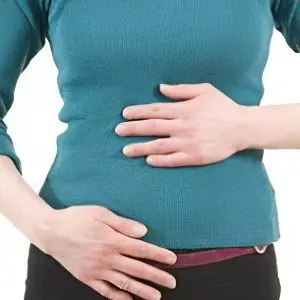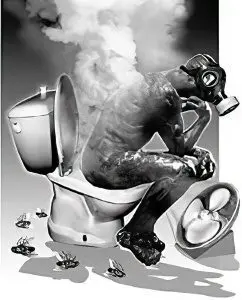Contents
What is intestinal gas?

Gas in the intestines (flatulence) is an extremely common phenomenon that occurs when there is an increased accumulation of gas in the gastrointestinal tract. This condition occurs due to overeating or eating foods high in fiber. In a normal state, about 600 ml of gases pass through the rectum every day in humans. They say about excessive gas formation if this amount is significantly higher than the norm, and the release of gases is accompanied by pain or discomfort.
Causes of gas in the intestines
Excessive gas formation in the intestines can be caused by various factors. These include disorders of the digestive tract, and insufficient production of the necessary enzymes, as a result of which the food is poorly digested and its particles end up in the lower sections of the gastrointestinal tract. The microflora of the lower intestines is not suitable for the full processing of food, so it decomposes and turns sour, as a result of which gas is produced.
The accumulation of gases also causes an increased content of fiber in some foods. “Dangerous” food is considered to be legumes (peas, beans), apples, cabbage. When overeating, the occurrence of flatulence is also possible, because the bacteria necessary for the digestion of food are not enough for its excess amount.
A common cause of increased gas production is impaired intestinal motility, as well as lactose intolerance. Sometimes flatulence also occurs due to stress.
Symptoms of gas in the intestines

Symptoms of gas in the intestines are bloating. Attacks of pain are characteristic. The pain itself has a cramping character. In rare cases, increased gas formation in the intestines is accompanied by nausea, vomiting. More common symptoms are constipation, diarrhea, or belching.
In addition to distension of the abdomen and general discomfort, a person complains of rumbling in the abdomen. There may be a feeling that there is constantly something overflowing.
Treatment of gas in the intestines
To treat gas in the intestines, attention should be paid to correcting your diet. This is usually enough to eliminate the causes of flatulence. If the violation is caused by diseases of the gastrointestinal tract, the patient needs their immediate treatment. With the help of biological products, it is possible to restore the intestinal biocenosis.
To quickly get rid of gases in the intestines, you can take Espumizan (Simeticone, Simicol) or Pepsan-R. (more about all medicines used for flatulence)
What foods should be excluded from the diet to avoid excessive accumulation of gases in the intestines? First of all, these are grapes, cabbage, sorrel, gooseberries, beans, peas, beans and asparagus. Potentially “dangerous” drinks include carbonated water, beer and kvass, which causes fermentation in the intestines.
Emphasis should be placed on fermented milk products (kefir, yogurt, fermented baked milk). It is useful to eat crumbly low-fat cereals, especially buckwheat and millet. Vegetables are best eaten cooked. Carrots and beets will not harm. The meat should also be boiled. Eat bran wheat bread. It is recommended to take activated charcoal, sorbex, polysorb, dimethicone, pepsin, pancreatin. These products will help to remove gases, toxins and other harmful compounds, preventing them from being absorbed.
[Video] Dr. Berg – What to do if you have bloating, constipation, acid belching?









